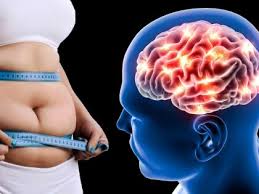Mental Health at Risk: AIIMS Psychiatrist Warns of Obesity-Linked Anxiety and Depression
By Lokmat English Desk | Updated: February 5, 2025 12:12 IST2025-02-05T12:11:53+5:302025-02-05T12:12:21+5:30
Obesity can lead to body-image issues, mood swings, anxiety, depression, and self-isolation, increasing the risk of emotional eating and ...

Mental Health at Risk: AIIMS Psychiatrist Warns of Obesity-Linked Anxiety and Depression
Obesity can lead to body-image issues, mood swings, anxiety, depression, and self-isolation, increasing the risk of emotional eating and making weight management difficult, according to a psychiatrist from AIIMS. Dr. Nand Kumar, a psychiatrist at the premier institute, stated that obesity not only contributes to various physical ailments but also majorly impacts mental well-being.
Obesity can result in health complications such as diabetes, hypertension, heart disease, kidney issues, and obstructive sleep disorder, Dr. Nand Kumar added.
“People with obesity may suffer from weight discrimination and this also contributes to the progression of the obese state by increasing the cortisol level in the blood,” Kumar said.
"Emotional eating refers to consuming food in response to negative emotions or stress as a way to suppress or soothe feelings such as stress, anger, fear, boredom, sadness, and loneliness," Dr. Nand Kumar explained. He added that major life events or even daily lifestyle hassles can trigger negative emotions, leading to emotional eating, which can hinder weight loss efforts.
“It is commonly observed that even people who do not consume much oil and fat develop obesity and stress plays a major role in this — when there is chronic stress of any kind, be it emotional or biological (sleep deprivation, pain, inflammation or consumption of external steroids) over a long term,” Kumar said.